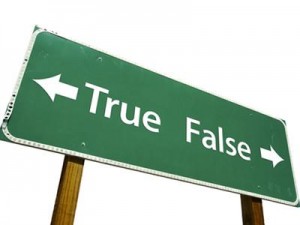 The Louisiana Supreme Court has struggled with bar applications submitted by law graduates who omitted criminal history information on their law school applications. Most recently, on December 8, 2015, the court admitted an applicant who failed to “disclose three arrests on his law school application.” See In re Committee on Bar Admissions CFN-52, No. 2014-DA-2452 (Dec. 8, 2015). The court’s decision in this regard is consistent with other recent orders admitting bar applicants.1 What is particularly interesting about this order, however, is the concurring opinion.
The Louisiana Supreme Court has struggled with bar applications submitted by law graduates who omitted criminal history information on their law school applications. Most recently, on December 8, 2015, the court admitted an applicant who failed to “disclose three arrests on his law school application.” See In re Committee on Bar Admissions CFN-52, No. 2014-DA-2452 (Dec. 8, 2015). The court’s decision in this regard is consistent with other recent orders admitting bar applicants.1 What is particularly interesting about this order, however, is the concurring opinion.
The concurrence, written by Associate Justice Weimer, notes the problem:
Annually, it seems this court is confronted with this issue: an applicant is less than candid on an application, but the indiscretions omitted from the application would probably not adversely impact admission.
Id. As a result of such lack of candor, applicants’ lives are “cast into limbo” while the court undertakes a costly and protracted character and fitness evaluation. Id. Justice Weimer’s advice? Avoid the problem in the first place:
Practical advice to law school applicants and bar applicants is this: only you can place yourself in a situation which calls into question your ability to be candid and truthful; do not place yourself in that situation. Demonstrating that something in your past you do not relish disclosing to a law school or to the Committee on Bar Admissions is no longer indicative of your character and that you do possess the requisite character and fitness to practice law may be possible. However, if you are not candid in your applications, then not only must you overcome whatever you did not want to disclose in the first place, but you must also overcome the suspicion that your lack of candor casts upon anything you might say in support of your character. As Albert Einstein observed: “Whoever is careless with the truth in small matters cannot be trusted in important affairs.” Youthful indiscretion and human frailty are more easily explained than a lack of candor.
Id. Good advice indeed. If only this message could be sent to and received by all law school applicants.
- See, e.g., In re Committee on Bar Admissions, CFN-295378, No. 2015-BA-1938 (admitting applicant who omitted criminal-history information on Loyola law school application); In re Confidential Party, CFN-618845, No. 2015-BA-0975 (Jun. 25, 2015) (admitting applicant who omitted criminal-history information on application to Tulane University Law School); In re Confidential Party, CFN-1913, No. 13-OB-2575 (Oct. 15, 2014) (admitting applicant who omitted criminal-history information on application to Southern University Law Center and the National Conference of Bar Examiners); In re Confidential Party, CFN-1317, No. 2014-BA-2264 (May 5, 2015) (admitting applicant who omitted criminal-history information on application to Southern University Law Center); In re Confidential Party, CFN-746, No. 2015-BA-0906 (Jun. 19, 2015) (admitting applicant who omitted criminal-history information on application to Southern University Law Center); In re Confidential Party, CFN-1248, No. 2014-BA-2277 (May 5, 2015) (admitting applicant who omitted criminal-history information on application to Southern University Law Center); In re Confidential Party, CFN-2792, No. 13-OB-2152 (Oct. 15, 2014) (admitting applicant who omitted criminal-history information on application to South Texas College of Law and the Texas Committee on Bar Admissions); In re Rusten May, No. 12-OB-1031 (Oct. 23, 2012) (admitting applicant who omitted criminal-history information on application to Loyola University New Orleans College of Law). ↵
